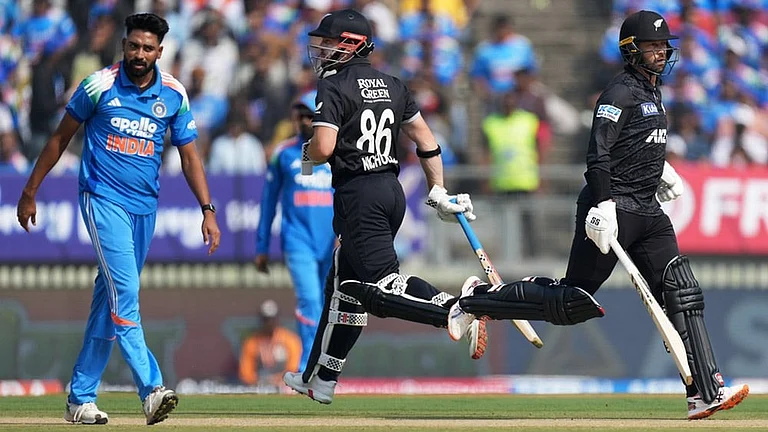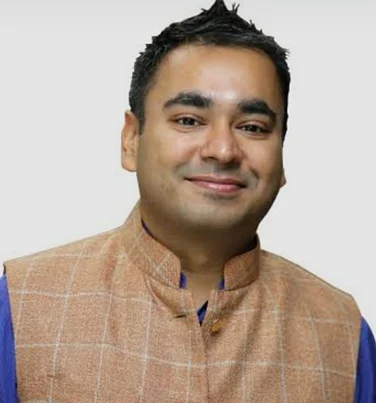Raksha Bandhan is cherished for its cherished traditions, but did you know that countless unique customs make this festival unforgettable? Soon to be embraced with complete affection and reverence is the festival of Raksha Bandhan. Although the most well-known features of Raksha Bandhan remain with us always, let's explore some of the lesser-known customs associated with Raksha Bandhan to connect with our heritage and gain a richer understanding of the festivities. If you'd like to learn more about the festival's origins, you can read about the reasons for celebrating Raksha Bandhan, including its legends and traditions.
Maa Bhagwati Raksha Sutra and Lumba Rakhi in Rajasthan
In Rajasthan, in addition to the usual custom of tying Rakhi, there exists another ritual that entails fastening a thread known as the Maa Bhagwati Raksha Sutra to the right wrist of both men and women. People also believe the goddess Bhagwati gives this thread, and they wear it to protect against evil spirits. This custom may reflect the festival's significant spiritual and religious status in this region, where divine and familial protection are perceived together.
Raksha Bandhan goes beyond merely tying a string; it carries cultural significance and regional differences in India that reflect the approach to diversity. These customs reveal that the symbol of Raksha Bandhan embodies concepts of love and safeguarding, along with unity. These traditions offer a brief glimpse into the different elements of the celebration, highlighting how relationships are valued not just among siblings but also with nature, deities, and the community.
The Koli Heritage in Maharashtra
The coastal area of Maharashtra experiences a distinctive observance of Raksha Bandhan within the Koli fishing community. Going beyond merely honoring sibling relationships, the fishermen's communities regard this festival as a link to the ocean. Koli women fasten Rakhi to the rudders of their fishing vessels to ask for the sea goddess's protection and pray for the safety of their dear ones who enter the open waters. The tradition highlights a shared sense of reverence that manifests in profound and unique cultural festivities, honoring the natural forces that support their way of life.
Brata Bandhan in Odisha
As in many other states of Eastern India, Raksha Bandhan is celebrated in Odisha as Brata Bandhan. This tradition is similarly done between brother and sister and close friends, and even close relatives. That is why the word “Brata” signifies a vow, and as we can assume, on this day, people give vows of friendship and protection, tying rakhis. This practice tended to depict the idea of the festival, which is the bond of protection encompassing not only the siblings but also other close individuals.
Pavitropana in Gujarat
In Gujarat, Raksha Bandhan occurs in connection with the celebration of Pavitropana, which is offered to Lord Shiva. On this day one can find many people visiting Shiva temples and presenting the pavitra, the sacred thread of white cotton and a piece of silk. This rite is a religious one with the aim of asking God for forgiveness for the sins committed in the past in order to cleanse the heart. For more families, there’s the dual character of Raksha Bandhan, and the rakhi, both being the tie between brothers or sisters, but also signifying the process of cleaning or sanctifying the family.
Jhulan Purnima in West Bengal
In West Bengal, Raksha Bandhan falls at the same time as the Jhulan Purnima festival, in which the celebration is centered on the love between Radha and Krishna. On this day, the temples are adorned with flowers and swings, and idols of Radha and Krishna are placed on the swings and swung to and fro. However, Raksha Bandhan is also about rakhis, but the day is also about devotional songs, dances, love, and friendship, and therefore celebration goes far beyond the principles of family.
Nariyal Poornima in the coastal regions
The coastal regions of the country celebrate Nariyal Purnima, especially in the states of Kerala, Tamil Nadu, and Andhra Pradesh. Many of the coastal regions in India observe Raksha Bandhan with what is known as Nariyal Purnima, the festival associated with Varuna, the sea god. Coconuts are also taken to the sea by fishermen, who pray to ask for a favor from the sea as well as to guard them from any tragedy as they go fishing. Even as the festival is based on the community’s relationship with the sea, the tying of rakhis is also performed, though in terms of the protection of the whole community instead of the protection of siblings.
Saluno in Haryana
The relations between brothers and sisters during Raksha Bandhan in Haryana follow a custom named Saluno. On this day, the sisters put new barley shoots in the ears of their brothers to protect them. As barley is holy in the region, the motive of this act would be to wish the brother wealth and goodness. On the same note, brothers offer gifts to their sisters in order to renew their affiliation with each other. This practice introduces a very symbolic aspect to the festival; the practice of incorporating traditional elements, such as the rakhi or the tilak to protect oneself, is given as much importance as protection from the rakhi.
FAQ
Q1: What are some lesser-known Raksha Bandhan traditions?
A1: Besides the classic Rakhi-tying, rituals such as the Lumba Rakhi in Rajasthan, Nariyal Poornima in the coastal states, and Brata Bandhan in Odisha add unique regional flavor to the festival.
Q2: Why does Raksha Bandhan have diverse customs?
A2: India’s cultural and religious diversity has blended local beliefs and traditions into the festival, making each region’s Raksha Bandhan celebrations uniquely meaningful.
Q3: When is Raksha Bandhan celebrated in 2025?
A3: This year, Raksha Bandhan falls on Saturday, August 9, 2025, with the auspicious time to tie Rakhi between 6:03 AM and 2:54 PM.



























